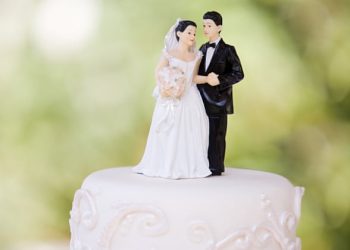In yet another attempt to defend the MDA’s licensing scheme, Dr Yaacob Ibrahim quotedtwo examples of other countries looking towards regulating new media: New Zealand and the United Kingdom.
Press regulation has been a fairly big issue in the UK ever since the phone hacking scandal broke. Throughout the Leveson Inquiry public trust in the media was low. Lord Justice Leveson’s report suggested some changes that could be made. These were the main points:
• Newspapers should continue to be self-regulated – and the government should have no power over what they publish
• There had to be a new press standards body created by the industry, with a new code of conduct
• That body should be backed by legislation, which would create a means to ensure the regulation was independent and effective
• The arrangement would provide the public with confidence that their complaints would be seriously dealt with – and ensure the press are protected from interference
– from BBC News
Prime Minister David Cameron was reluctant to adopt some of these recommendations, and declared his intention to publish a royal charter for a tougher press regulator.
After initial disagreements between the different political parties, a deal was struck by politicians and campaigners in the early hours of the morning. The meeting was closed-door, and precluded a Parliamentary vote on the royal charter.
This deal angered the British media, and lacked support. Here’s an example: the New Statesman published an editorial rejecting the royal charter and criticising it as rushed and confused The New Statesman also highlighted the possibility of the royal charter being used to “regulate the Internet” because of vague definitions of “publisher”:
The definition of “publisher” covered by the new regulator was set out as not just either a newspaper or a political and cultural magazine, such as the New Statesman, but also “a website containing news-related material”. This threatened to drag in personal blogs and social media accounts; in effect, it would try to “regulate the internet”, a completely impossible task, and one not covered by Lord Justice Leveson’s inquiry or recommendations. Downing Street once again tried to brief that this was not the case but failed to explain exactly what was meant by “news-related material”. The danger is that bloggers will now find themselves subject to “exemplary damages”, imposed by a regulator that they were never originally supposed to join.
Following the poor response from the press, the government has delayed its plans to send the royal charter to the Privy Council so that the Privy Council will have the chance to consider separate proposals put forward by the media.
In the case of the UK we see discussion and a plurality of views. We see a decision-making process where actors apart from the government are able to make some input. We see the government’s plans put on hold so that alternative views can be consulted and considered.
This is not what we have seen in Singapore. In Singapore, there has been no consultation. All we had was a mere five-day heads-up that this was happening, and we were not supposed to have any say.
Since the Leveson Inquiry public trust in the British press has been low (albeit lower for some publications than others). But this is because British journalists have been caught behaving badly, breaking laws and trampling on their own professional ethics to get a story that will sell. Disturbing and uncomfortable connections between certain actors in the press and politicians were found.
In Singapore, the lack of public trust in Singapore’s mainstream media has not come from individual misdemeanours from journalists. It has come from precisely what the government is doing now – attempts to regulate that look more like control and censorship. Government interference, rather than criminal behaviour, has damaged the trust Singaporeans have in their media.
A lot of the anger in the UK came from the relationship between the government and the media. The press was basically used for political purposes, so much so that no politician could hope of winning elections without getting getting friendly with certain media magnates and editors. That was one of the reasons for such an outcry for press reform and regulation: to bring an end to the incestuous relationship between the state and the media.
The MDA’s licensing scheme shows that nothing was learnt from the UK’s example. It has completely missed the point of the Leveson Report, which specifically stated that the government should have no power over what is published in the media.
In fact, the only similarities I can see between the MDA licensing scheme and the royal charter is that they were both rushed and ill-conceived, drafted behind closed doors without proper discussion, without a Parliamentary vote.
That’s not exactly the comparison we should aspire to, is it?







